Understanding line plots Measurement Worksheets for Ages 4-8
10 filtered results
-
From - To
Welcome to our "Understanding Line Plots" measurement worksheets, designed specifically for kids aged 4-8! These engaging resources help young learners grasp the concept of line plots and measurement in a fun and interactive way. Featuring colorful illustrations and age-appropriate activities, our worksheets encourage students to collect data, interpret line plots, and make sense of measurements. With a variety of exercises, including filling in graphs and answering questions, children will enhance their math skills while developing critical thinking. Perfect for home or classroom use, these worksheets are an excellent tool to foster a love for mathematics in early learners. Start exploring today!
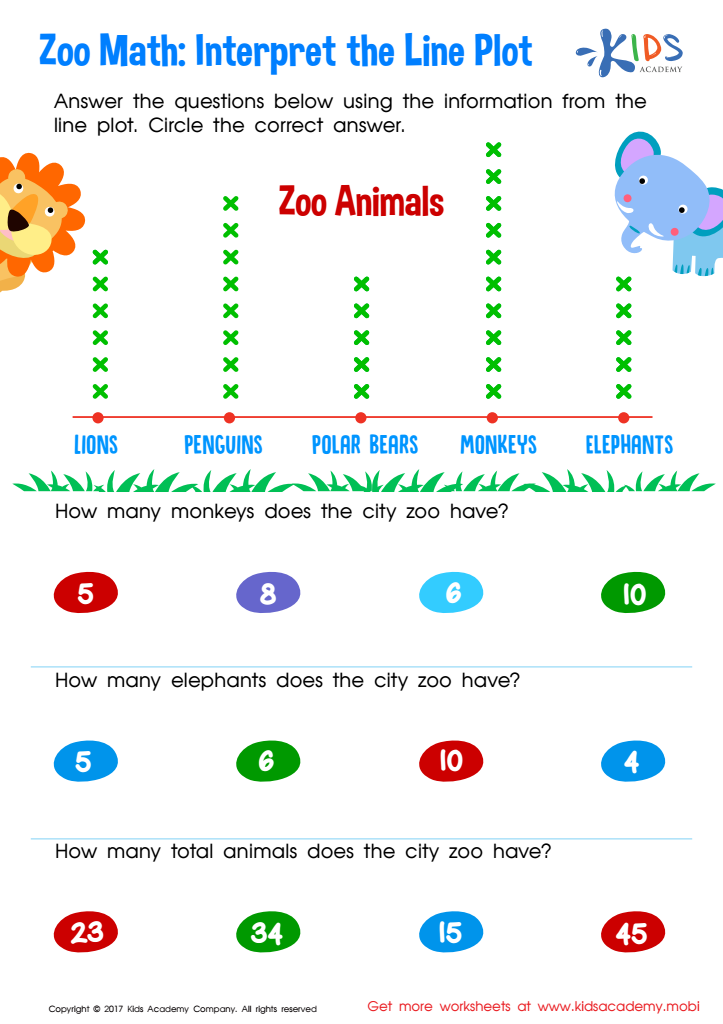

Interpret Line Plot Worksheet
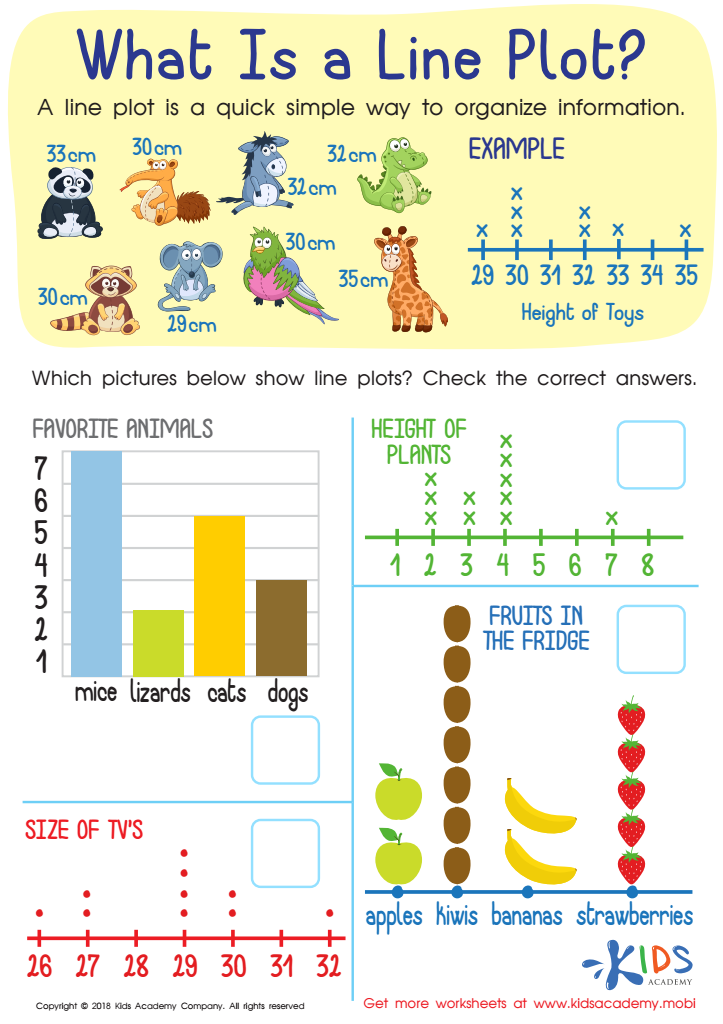

What Is a Line Plot? Worksheet
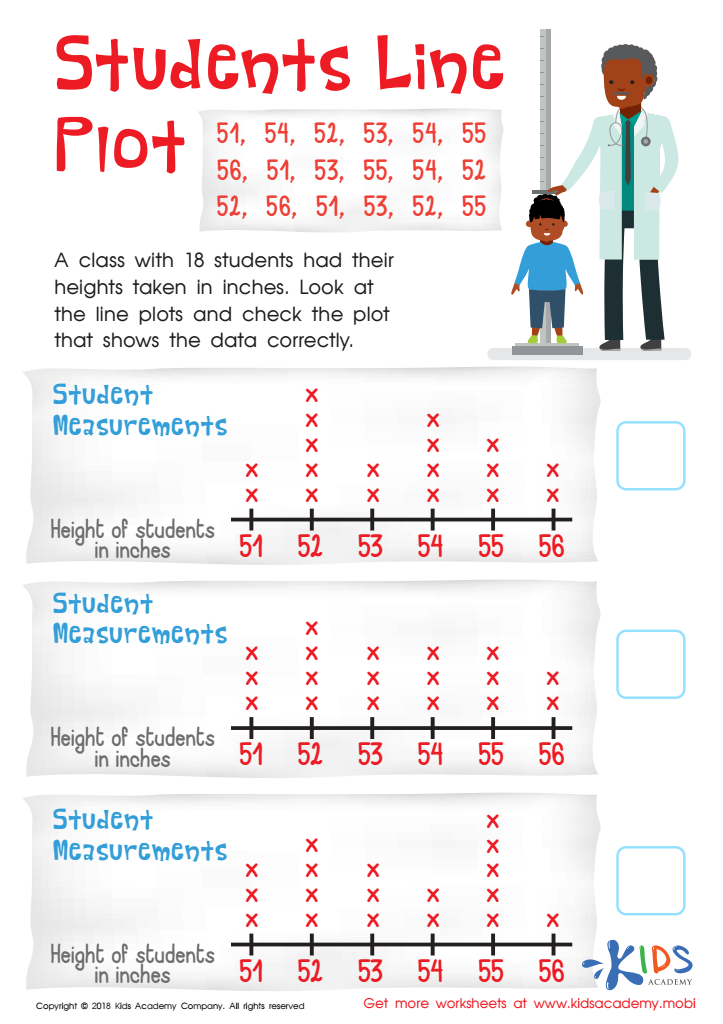

Students Line Plot Worksheet
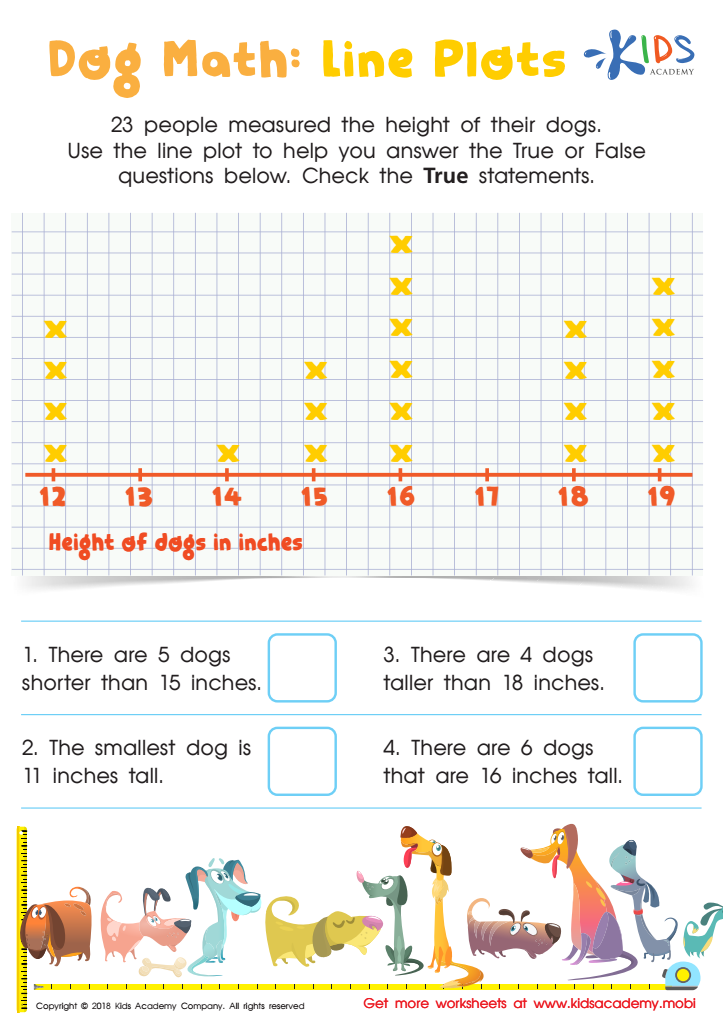

Dog Math: Line Plots Worksheet
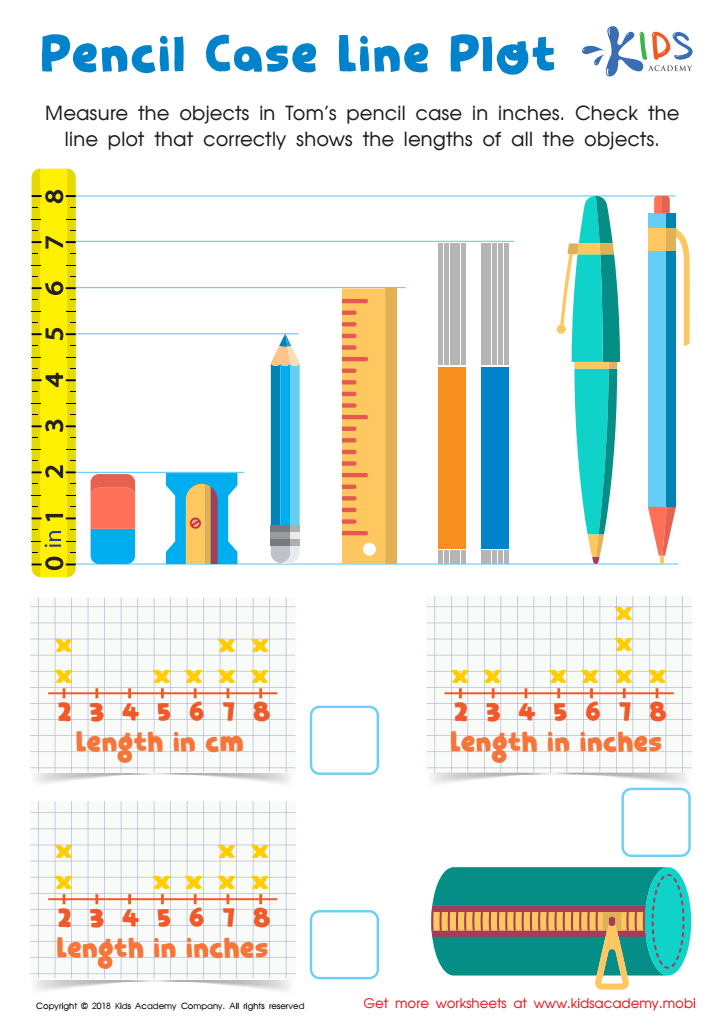

Pencil Case Line Plot Worksheet
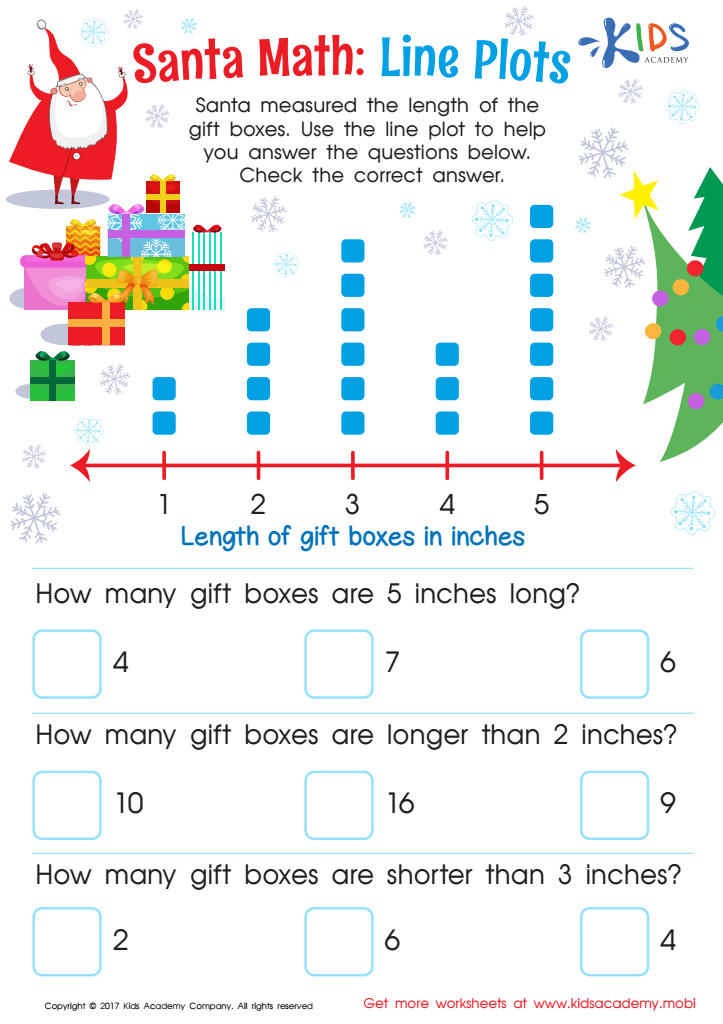

Line Plot Worksheet
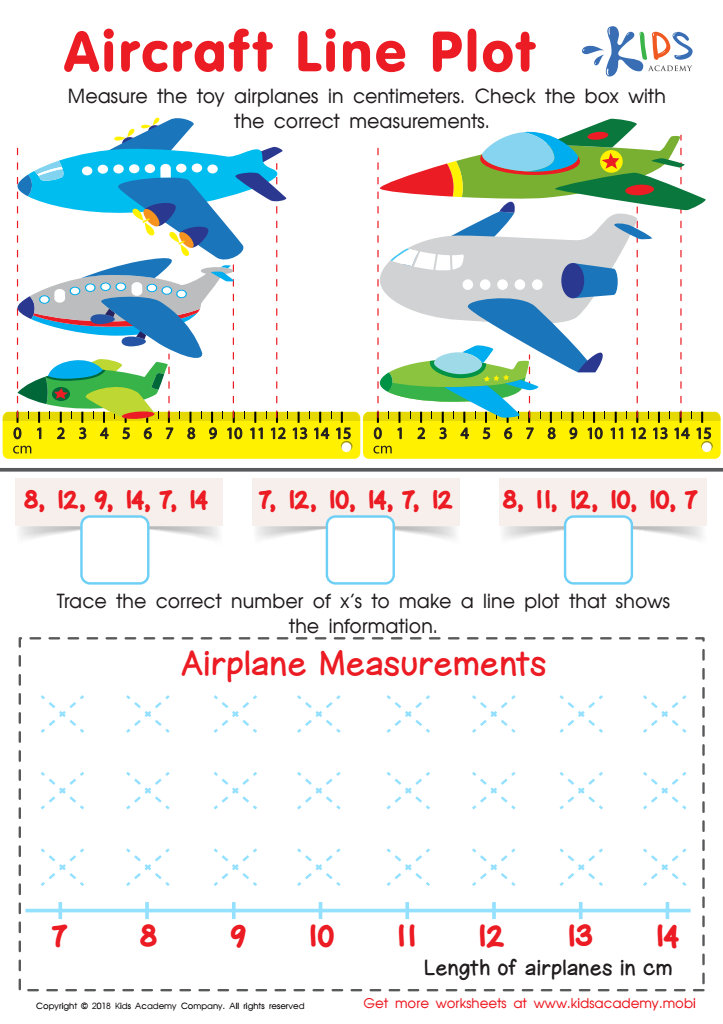

Aircraft Line Plot Worksheet
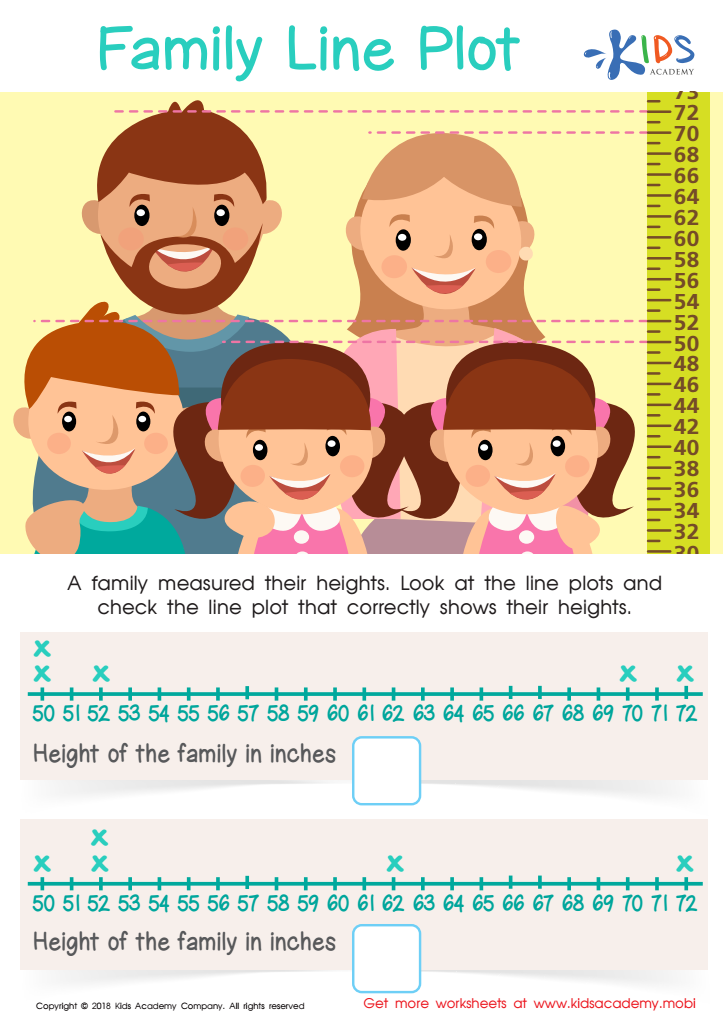

Family Line Plot Worksheet
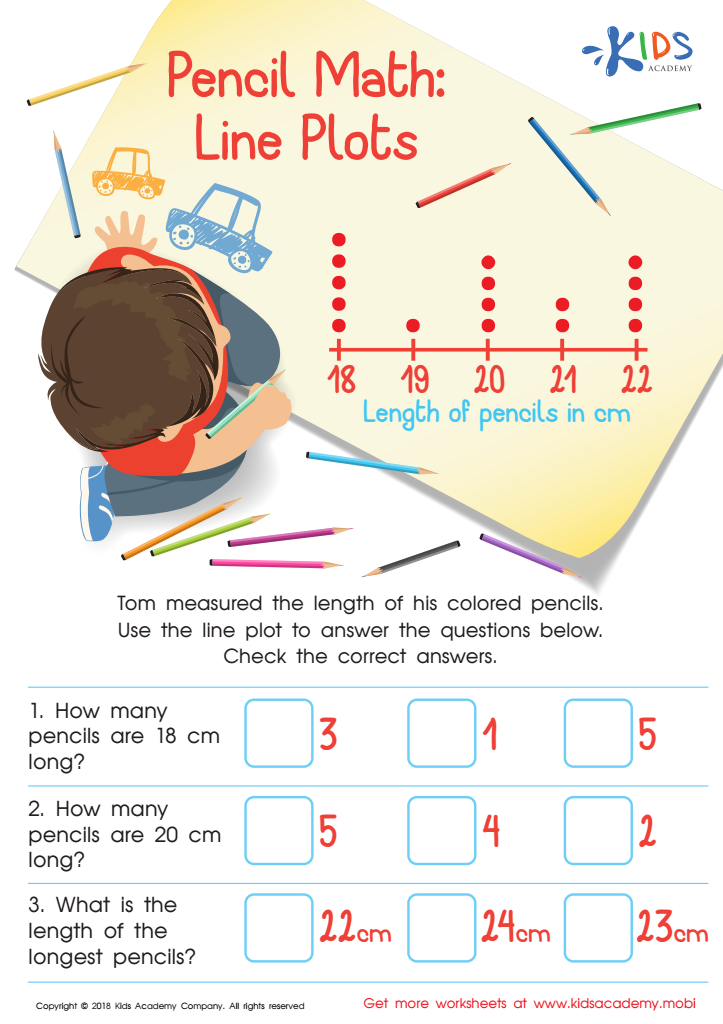

Pencil Math: Line Plots Worksheet
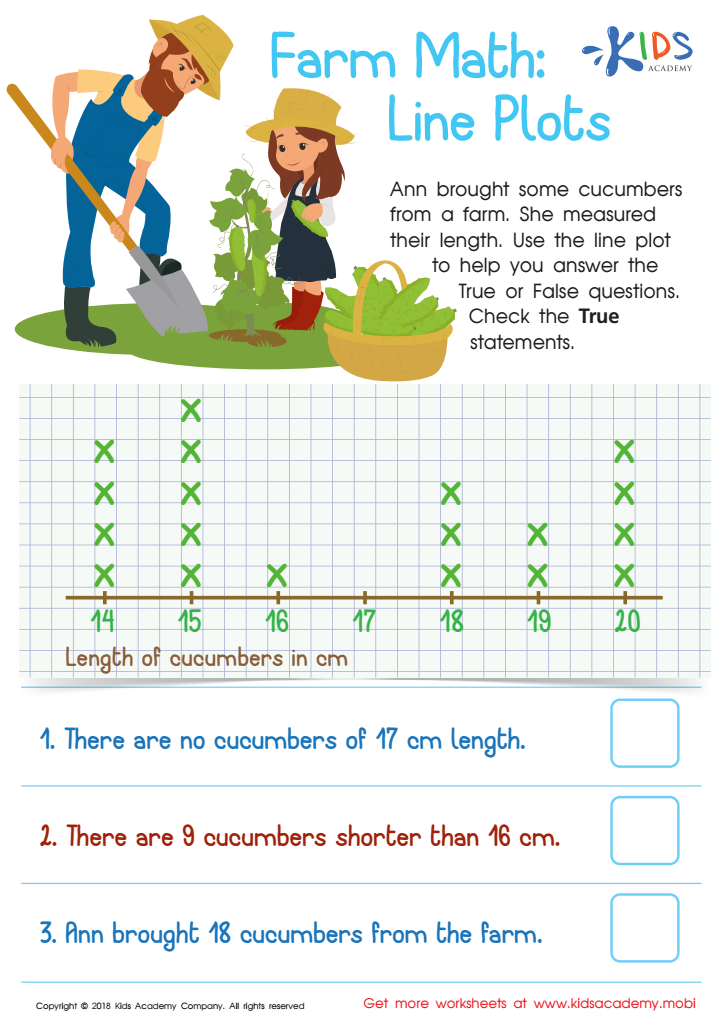

Farm Math: Line Plots Worksheet
Understanding line plots and measurement is essential for children aged 4 to 8, as these skills are foundational for their mathematical development. Parents and teachers should care about this for several reasons. Firstly, measurement helps children develop a sense of quantity and size, enhancing their ability to compare objects, understand spatial relationships, and apply practical skills in everyday life. As they learn about lengths, weights, and volumes, they gain confidence in their problem-solving abilities.
Line plots, on the other hand, introduce young learners to data representation. This skill fosters analytical thinking, allowing children to gather, organize, and interpret information visually. By creating and reading line plots, children learn to recognize trends and patterns, promoting critical thinking and decision-making skills. Additionally, exposure to these concepts early on can spark a child’s interest in math and science, paving the way for future academic success.
Furthermore, integrating measurement and line plots into everyday activities, such as cooking or crafting, provides a hands-on approach to learning, making it engaging and relevant. As these concepts become second nature, children strengthen their overall numeracy skills, setting a solid foundation for advanced mathematical concepts in later years. Hence, fostering a love for these skills is vital for lifelong learning.
 Assign to My Students
Assign to My Students






















